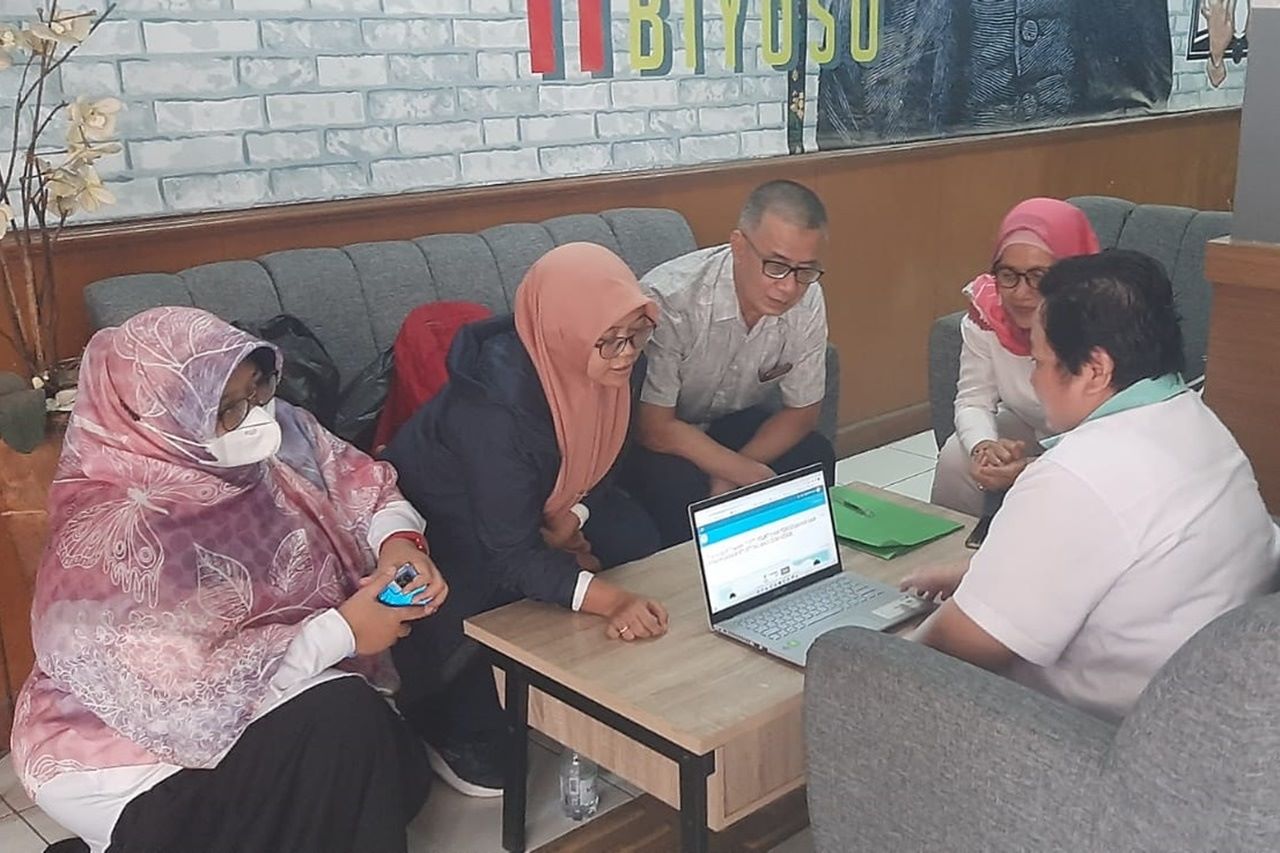CIMAHI (September 5, 2022) - We should be grateful when the MoSA included the
word 'inclusive' as an element in its slogan. The slogan was humanist,
adaptive, dedicated, inclusive, and responsive or abbreviated as HADIR
(Presence). These five elements will always be put forward in all the services
of MoSA to all citizens.
Especially regarding inclusiveness, MoSA provided
services that were accessible to all levels of society without exception. One
of them was in the field of education and training. The education, training, and
professional development center (PUSDIKLATBANGPROF) of MoSA recently visited Abiyoso
Center to identify the needs of persons with disabilities for an
accessible digital learning system. This visit was represented by a team
consisting of A. Zein Arifin (Trainer Specialist), Umi Badri Yusamah (Trainer
Specialist), Mujiastuti (Senior Trainer), and Bonnie Isramirania (Junior
Trainer).
During this visit, the Pusdiklatbangprof team had time
to test the accessibility of their website, elearning.kemensos.go.id, using a
laptop with a screen reader installed. As was known, the ability of persons
with visual disabilities to access the cyber world could not be separated from
the help of screen reader programs. With a screen reader, persons with visual disabilities could operate sophisticated devices independently. However, there were still some digital items that were sometimes not compatible with the screen
reader's working system. Therefore, it was necessary to conduct a trial first
before a digital work or program was declared accessible for users with visual
disabilities.
"We want to create a Pusdiklatbangprof that is
inclusive and accessible to everyone," said one team member, Mujiastuti.
On that occasion, Muji also briefly asked a civil servant with a visual disability
at Abiyoso Center named Iin about the most suitable format for a blind person
to learn.
"I prefer to read Braille to study,
but when it comes to doing questions, I prefer digital format because it can be
clicked directly to find out if it's true/false," answered Iin.
Of course, the answer of one of the civil servants could not represent all persons with visual disabilities. Some were more comfortable using digital formats as a preference when
studying a material. We were very proud and grateful when these two formats could
be applied in the preparation of learning modules.
This was well realized by Pusdiklatbangprof. This visit was not their first visit to Abiyoso Center to facilitate access for persons with visual disabilities to an inclusive learning system.
 Bahasa
Bahasa
 English
English


